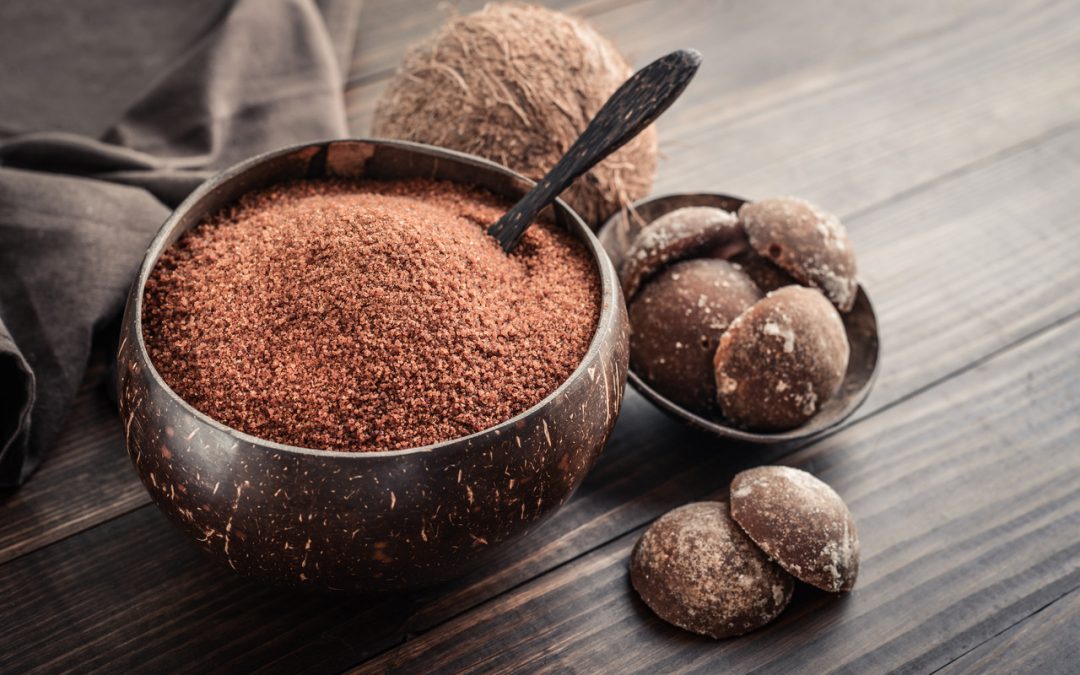While people with diabetes need to be mindful of sugar intake, there is no fixed rule to forgo the sweet stuff altogether. Most people with diabetes can choose healthier alternatives to sugar to manage blood sugar levels.
Jaggery, a form of unprocessed cane sugar, is one of the oldest sweeteners. Unlike refined sugar, jaggery still retains some nutrients. Although organic, unprocessed jaggery is a healthier option over refined white sugar and over-processed cane sugar, a person with diabetes cannot rely only on jaggery.
The assumption that jaggery will not increase blood glucose levels makes diabetic people eat jaggery in excess. Therefore, eating jaggery when you have diabetes is still under debate.
Jaggery: An Overview
Jaggery is a natural, traditional sweetener prepared from concentrated sugarcane juice and is a typical sweet staple in Asia, Africa, and Latin America.
It is commonly known as “Gur” in India. Unrefined jaggery has high medicinal value, including antioxidant activity, positive effects on cardiovascular function, improved immune health, and even aids in treating certain gastrointestinal disorders.
Research shows that jaggery is a more advantageous choice when compared to processed sugars like white and brown sugar. Therefore, dietitians often advise substituting sugar with jaggery when making desserts due to its unrefined nature.
You may make jaggery out of date palm or sugarcane. Traditional jaggery comes from boiling date palm sap or unpasteurised sugarcane juice in a pot. It goes through less processing than sugar.
The by-product of preparing jaggery is much less refined than crystallised sugar. Therefore, jaggery still retains iron, magnesium, calcium, and potassium. It is best to consume organic jaggery because it’s free from chemicals.
Few people think that jaggery is safe for people with diabetes. At the same time, some claim to avoid consuming most (if not all) forms of sugar when having diabetes. Because of this, many people with diabetes are unsure whether they should eat jaggery.
Is It Safe for Diabetics to Eat Jaggery?
Using natural sweeteners instead of artificial ones is healthier when preparing food for people with diabetes. However, not all natural sweeteners are safe for people with diabetes.
Jaggery made from organic ingredients is better than white sugar, which has undergone heavy processing. Unlike white sugar, organic jaggery does not include chemicals and additives. However, these benefits of jaggery apply only when you keep its intake limited.
While jaggery looks like a better option than refined sugar, it doesn’t necessarily imply that it will not increase your blood glucose levels. Jaggery can still cause a blood sugar rise since most of the carbohydrates in jaggery are sugars. For example, 100g of jaggery contains 98.96g of carbohydrates and 383 calories.
On the other hand, a 100g serving of sugar has about 100g of carbohydrates and 387 calories. These nutritional values imply that jaggery is only slightly better than sugar. Therefore, jaggery and sugar are equally unsafe or unhealthy for people with diabetes, especially when eaten in large quantities.
Jaggery has a high glycemic index(GI) value of 84.4. A food with a high GI has a lot of sugar in it. Additionally, it might result in a sharp increase in blood glucose levels. The ideal diet for people with diabetes includes foods with a low glycemic index. However, if you need to eat jaggery, ensure moderate consumption while following other precautions, such as limiting the consumption of other foods rich in carbohydrates. Keep your jaggery intake no more than 1-2 teaspoons a day.
A nutritious and balanced diet is the best strategy to control blood sugar if you have diabetes because it helps you manage the condition better.
Nutritionist suggests using natural herbs like ginger, basil, and cardamom for flavour instead of jaggery. Plus, diabetic patients should consider the glycemic index and glycemic load before adding any foods to their diet. Therefore, speak with your doctor to find out what foods are safe and which are not before making any dietary changes.
The HealthifyMe Note
Always eat jaggery in moderation, whether you have diabetes or not. Diabetic patients tend to eat jaggery in excess, assuming that it will manage diabetes, but jaggery increases your blood sugar levels. Despite having antioxidant activity and positive effects on cardiovascular function, jaggery comprises carb count and calories similar to sugar.
Which Type of Jaggery is Good for Diabetes?
Jaggery can be a better alternative to white sugar, but not for diabetics. However, organic jaggery in moderation can satisfy your sugar cravings.
It is best to use unprocessed variants in minimal amounts when you have diabetes. For people who are healthy and have no diabetes, natural and organic jaggery is much better than white sugar and artificial sweeteners.
Conclusion
Jaggery can increase blood sugar levels. Therefore, using jaggery for diabetes may not be healthy or safe as it has a high glycemic index. While the impact of jaggery on blood glucose may not be as high as that of white sugar, its effect is high enough for it to be considered unsafe for a person with diabetes.
The primary aim of a diabetes diet is to maintain blood sugar levels, which may not be possible with the consumption of jaggery. You may take 1-2 teaspoons of organic jaggery to satisfy your sugar cravings.


